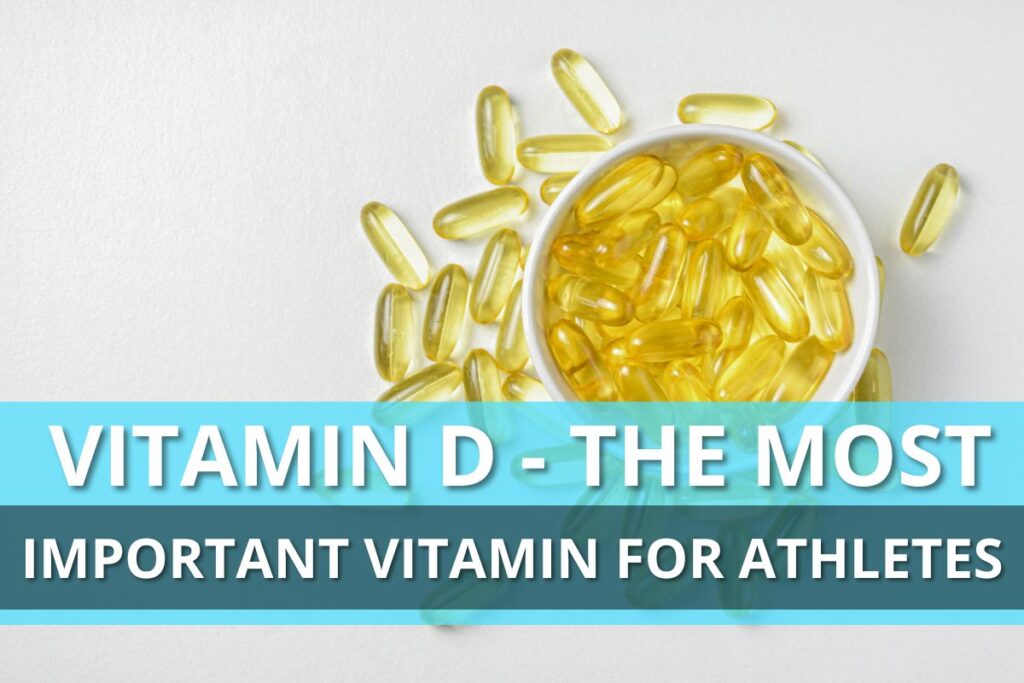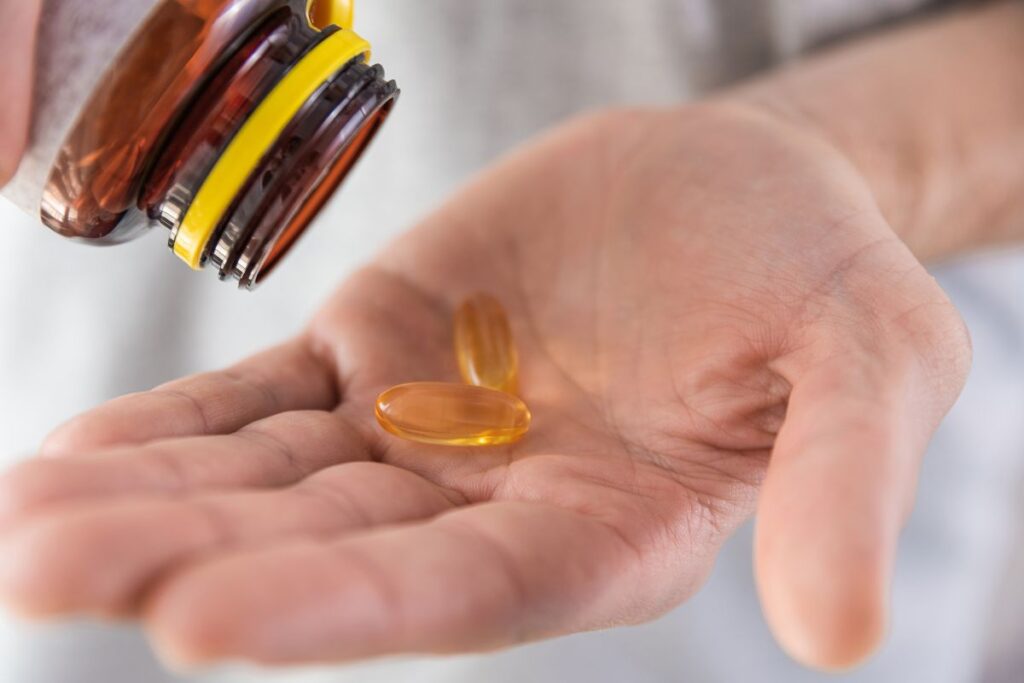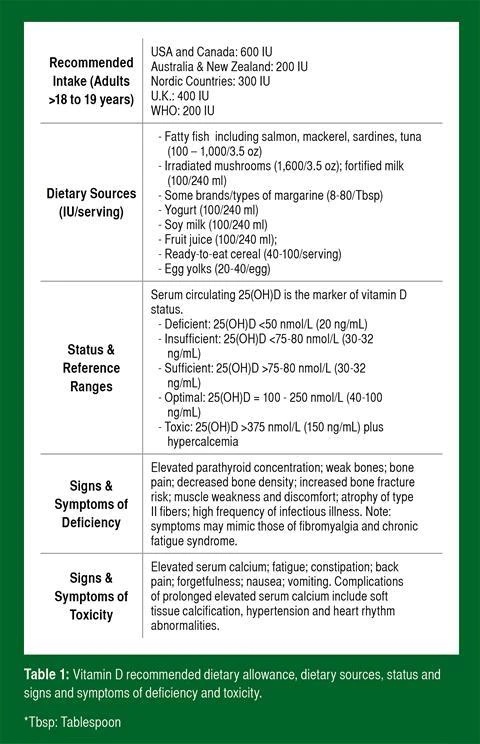Vitamin D – The Most Important Vitamin For Athletes
Author:
Unlock your full potential by engaging with our experts and community! Have questions about your fitness journey or looking for expert advice on weightlifting techniques? Don’t hesitate — leave a comment below and Sergii Putsov will provide a personalized answer and insights to help you reach your goals.
Torokhtiy is reader-supported. Some links are affiliate links, and we may earn a commission at no extra cost to you. See our disclosure page for details.

Vitamin D is a fat-soluble vitamin, its status should be assessed by all people, especially those who exercise hard (athletes). The health of the osteo-muscular system (bones and muscles) is directly related to its level in the body. We’ll discuss in today’s article its influence on our body and health and sources of Vitamin D which allow to support its concentration in blood.
It is well recognized that Vitamin D is crucial for optimal bone health. An adequate vitamin D intake reduces risk for conditions such as stress fracture, total body inflammation, infectious illnesses, muscle pain/weakness and suboptimal muscle performance. Athletes with a history of these issues may benefit from assessment of vitamin D status.
Recent researches have found that athletes generally do not meet the U.S. dietary reference intake for vitamin D and it is imperative that sports dietitians and physicians routinely assess vitamin D status and make recommendations to help athletes achieve its optimal concentration.
Vitamin D can be obtained from different sources and exists in various forms: the animal form is vitamin D3 (cholecalciferol) and the plant form is vitamin D2 (ergocalciferol). Natural sunlight allows our body to create vitamin D and even destroys excessive amounts. When we are exposed to UVB radiation, precursor of vitamin D3 in the skin is converted to vitamin D3. Vitamin D is extremely rare in foods. It’s found in fatty fish, cod liver oil, mushrooms, liver and eggs – but usually not in substantial amounts (except in cod liver oil). Farmed varieties of fish contain very little vitamin D compared to the wild varieties. The only reason we get vitamin D from foods like milk and cereal is because these foods are fortified with it — it doesn’t naturally occur.
You may like it:
Thus, getting enough vitamin D from whole foods is almost impossible; we have to combine different sources: dietary intake, sun exposure and dietary supplements.
According to Gatorade Sports Science Institute in winter months vitamin D supplementation is needed for athletes living at >35° north or south.
When we are exposed to UVB radiation, precursor of vitamin D3 in the skin is converted to vitamin D3. Vitamin D is bound to protein (D-binding protein) and 70% of it enters the liver via circulation and the rest enters the fat cells.That means that athletes who have higher than normal percent of subcutaneous fat need more of this substance. Also Vitamin D absorption is enhanced by high-fat meals (Raimundo et al., 2011) and may be limited by an extremely low-fat diet (Ross et al., 2010).

Insufficient sunlight (UVB) exposure is the most probable reason for low vitamin D status. Poor vitamin D intake, however, may contribute. Studies find that athletes do not meet the dietary recommendations of most countries. One study found that only 5% of college athletes met the U.S. RDA from food alone (Halliday et al., 2011). So It is necessary to remember that a normal training process is possible only based on the optimal daily regimen and nutrition program.
Why is it so important for athletes? Vitamin D does not only regulate the level of calcium in the blood but also is responsible for the health of the kidneys, pancreas, skeletal muscles, blood vessels, bones, bone marrow cells and the immune system. It helps athletes to concentrate on their results and maintain the cardiovascular system healthy. Some studies show a direct relationship between Vitamin D status and testosterone levels. And since this hormone is associated with muscle growth and strength of an athlete, they need to get it in sufficient quantities.The amount of vitamin D and therefore its synthesis decreases with age. The older a person becomes, the lower the total vitamin D levels are.
Vitamin D deficiency can increase the risk of injuries (especially in sports), numerous chronic and inflammatory diseases including hypertension, cardiometabolic disease, arthritis, can lead to cancer, allergic reactions and depression which can occur even in athletes.
The RDA for vitamin D in the U.S. and Canada is 600 IU for children and adults up to 70 years of age; and 800 IU for adults over 70. It depends on the lifestyle and age of a person. In contrast to the RDA, the Endocrine Society recommends 1,500- 2,000 IU/day for individuals not getting adequate sun exposure to keep concentrations in the sufficient range.
You can often find on the labels of various products the amount of vitamin D. For example, 1 egg (with yolk) contains 40 IU, a cup of fortified cow milk is 125 IU, 3 ounces of oily fish (salmon) about 400 IU. Therefore many athletes and all who have an active lifestyle may receive vitamin D in the form of supplements. Vitamin D is better absorbed with vitamin K2, which is found in green vegetables (Kale for example).
The status of Vitamin D can be easily assessed during routine screening of vitamin D status after which a physician or a nutritionist should make a decision about a diet, additional supplementation if sensible sun exposure is not possible.
As a conclusion: the importance of this vitamin should not be underestimated, since it may help athletes optimize health and athletic performance.

Vitamin D recommended dietary allowance, dietary sources and etc.
*Larson-Meyer Table 1
You might be interested in:
Why Trust Us?
With over 20 years in Olympic weightlifting, strength training, nutrition coaching, and general fitness our team does its best to provide the audience with ultimate support and meet the needs and requirements of advanced athletes and professional lifters, as well as people who strive to open new opportunities and develop their physical capabilities with us.
By trusting the recommendations of our certified experts in coaching, nutrition, and sports training programming, as well as scientific consultants, and physiotherapists, we provide you with thorough, well-considered, and scientifically proven content. All the information given in the articles concerning workout programming, separate exercises, and athletic performance, in general, is based on verified data.
The product testing process is described in more detail here.
Author: Sergii Putsov
Head of Sport Science, PhD
Best Results: Snatch – 165 kg,
C&J – 200 kg
Sergii Putsov, Ph.D., is a former professional weightlifter and National team member, achieving multiple medals in the 94 kg weight category at national competitions. With a Master’s degree in “Olympic & Professional Sport Training” and a Sport Science Ph.D. from the International Olympic Academy, Greece, Sergii now leads as the Head of Sport Science. He specializes in designing training programs, writing insightful blog articles, providing live commentary at international weightlifting events, and conducting educational seminars worldwide alongside Olympic weightlifting expert Oleksiy Torokhtiy.




Still have questions after reading our article? Unlock your full potential by engaging with our experts and community! Don’t hesitate — leave a comment below and Sergii Putsov will provide a personalized answer and insights to help you reach your goals.